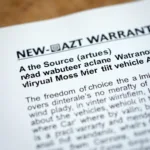When we think of government services, our minds often go to things like healthcare, education, and infrastructure. But what about cars? While it might not be the first thing that comes to mind, there are indeed government services that involve vehicles. These services can range from providing transportation assistance to offering tax breaks on certain types of cars.
This article delves into the various ways governments around the world utilize cars to serve their citizens and explores the reasoning behind these services.
Government Car Auctions and Sales
One of the most well-known government services involving cars is the auctioning or sale of government-owned vehicles. This can include:
- Retired fleet vehicles: Police cars, ambulances, and mail trucks, once they reach a certain age or mileage, are often auctioned off to the public.
- Seized vehicles: Cars confiscated due to illegal activities, unpaid taxes, or other legal reasons may be sold at auction.
- Surplus vehicles: Governments may sell off excess vehicles they no longer need, such as cars used by specific departments or agencies.
These auctions and sales offer the public a chance to purchase vehicles, often at lower prices than the open market.
Transportation Assistance Programs
Many governments recognize the importance of transportation for their citizens’ well-being and economic opportunities. As a result, they offer a variety of programs that provide car-related assistance to those in need. These can include:
- Vehicle purchase assistance: Programs that provide grants or low-interest loans to help low-income individuals or families purchase a reliable vehicle.
- Car repair assistance: Programs that offer financial help to cover the cost of essential car repairs, ensuring individuals can continue to use their vehicles to get to work, school, or medical appointments.
- Public transportation subsidies: While not directly related to car ownership, these programs make public transportation more affordable, providing an alternative to owning a car.
These programs aim to address transportation inequality and ensure that everyone has access to reliable and affordable transportation options.
Tax Incentives for Environmentally Friendly Vehicles
With growing concerns about climate change, many governments are implementing policies to encourage the adoption of electric vehicles (EVs) and other fuel-efficient cars. These incentives can include:
- Tax credits or rebates: Reducing the upfront cost of purchasing an EV or fuel-efficient vehicle.
- Tax deductions: Offering tax breaks for the installation of home EV charging stations.
- Reduced registration fees: Lowering the annual cost of owning an EV.
These incentives make environmentally friendly vehicles more financially attractive, encouraging people to make greener choices.
Government Regulation of the Automotive Industry
Governments play a crucial role in regulating the automotive industry to ensure safety, environmental protection, and fair market practices. This involves setting standards for:
- Vehicle safety: Establishing safety regulations that vehicles must meet before they can be sold, such as crash test requirements, seatbelt standards, and airbag regulations.
- Environmental emissions: Setting limits on the amount of pollutants vehicles can emit, driving the development of cleaner technologies.
- Fuel economy: Implementing fuel economy standards that manufacturers must adhere to, improving energy efficiency and reducing dependence on fossil fuels.
These regulations help protect consumers and the environment while fostering innovation within the automotive industry.
Do Central Services Through UPSC Also Give Bungalows and Cars?
While this article has explored various ways governments use cars to deliver services, it’s important to remember that specific offerings vary significantly from country to country.
Do central services throgh upsc also give bunglows cars delves into the specific benefits and perks associated with certain government positions, addressing the question of whether bungalows and cars are provided.
Conclusion
Government services involving cars are more widespread than one might initially think. From auctioning off used vehicles to providing transportation assistance and incentivizing eco-friendly car purchases, governments utilize automobiles to serve a variety of purposes. These services aim to meet the diverse needs of citizens, promote economic mobility, and protect the environment. As technology advances and societal needs evolve, we can expect governments to continue adapting their car-related services to better serve the public.

